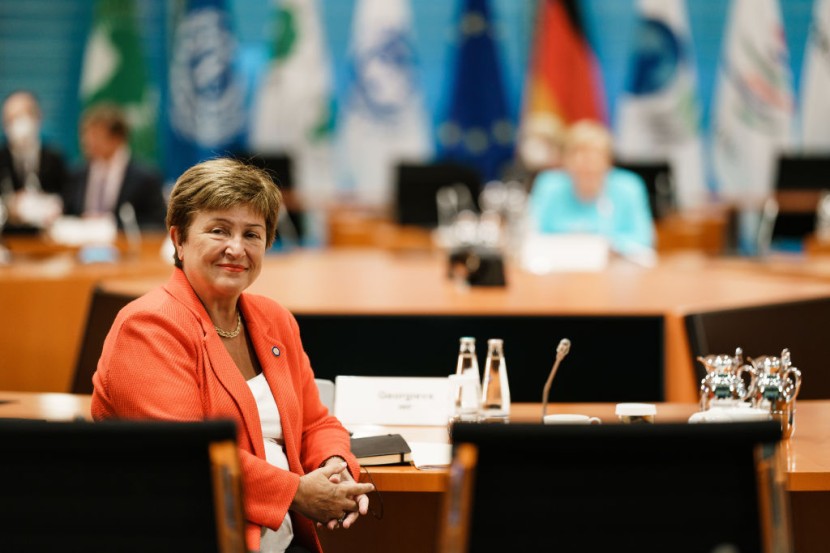
The chief of the International Monetary Fund (IMF) warned that the war between Russia and Ukraine negatively impacts worldwide economic performance and pointed out that high inflation and weakened food security threaten nations.
In a speech on the eve of next week's spring meetings of the IMF and the World Bank in Washington, IMF Managing Director Kristalina Georgieva said Russia's aggression on Ukraine was contributing to economic downgrades for more than 140 countries. However most of them should continue to expand, AP News reported.
She claimed that the war has interrupted the global oil and grain trade, causing advanced economies to experience their steepest rates of inflation in four decades. Plus food shortages in Africa and the Middle East are a serious concern.
The Impact of Inflation and Current Geopolitical Situation
Businesses have been taken off guard by an unexpectedly strong rebound from 2020's pandemic recession, leaving factories, ports, and freight yards unable to keep up with strong client demand and pressuring prices up.
Georgieva said that chronically high inflation is resulting in "a massive setback for the global recovery" as it pushes the central banks in the world to increase interest rates that will possibly hinder economic development.
The IMF chief also cautioned about the international economy being divided into "geopolitical blocs," with the West putting broad sanctions on Russia and China professing support for President Vladimir Putin's dictatorial leadership.
She noted that aside from the threats of the war in Europe, the global pandemic, and rising sea levels, the "threat to our collective prosperity from a breakdown in global cooperation cannot be overstated."
Georgieva also raised worries about food security as "grain and corn prices are soaring" with country leaders in Africa and the Middle East saying that supplies "are running now".
"Food insecurity is a grave concern," she said.
Before the Russian invasion of Ukraine, the two countries had supplied 28% of global wheat exports. While Russia and Belarus supplied 40% of exports of the important fertilizer potash.
Hence she urged world leaders to "act now with a multilateral initiative to help improve global food security.
"The alternative is dire: More hunger, more poverty, and more social unrest - especially for countries that have struggled to escape fragility and conflict for many years," she said.
Her warning comes as actual data revealed that UK inflation hit 7% in March, the highest since 1992, mainly to a spike in fuel prices. Inflation in the United States has reached 8.5 percent, the highest since the early 1980s, while in the eurozone it has reached 7.5 percent, according to The Guardian.
Global Growth Forecast Down
Georgieva cautioned that global inflation rates were likely to stay higher for longer than initially assumed. Despite her call for central banks to "act decisively" to tackle rising living costs, she stressed that governments must maintain key spending and develop a framework for long-term progress.
She said the IMF would lower its forecasts for 143 nations throughout the world, amounting to 86 percent of global GDP.
In January, the IMF cut its global growth forecast to 4.4% for 2022 as the Omicron variant weighed on activity across the world, but the head of the fund said this would be scaled back further in new forecasts to be published in next week's World Economic Outlook.
"Since then, the outlook has deteriorated substantially, largely because of the war and its repercussions," she said. "Inflation, financial tightening, and frequent, wide-ranging lockdowns in China - causing new bottlenecks in global supply chains - are also weighing on activity."
ABC News reported that Georgieva urged the global community to rally behind Ukraine, noting that the IMF has provided $1.4 billion in emergency funding to help Ukraine fulfill its short-term spending requirements.
The IMF also provides aid to Ukraine's neighbors, particularly Moldova, which has accepted nearly 400,000 war refugees.
Related Article : Russia To Sell Oil at Almost Any Price as World's Top Trader Set To Stop Buying Country's Crude Supply
© 2025 HNGN, All rights reserved. Do not reproduce without permission.








